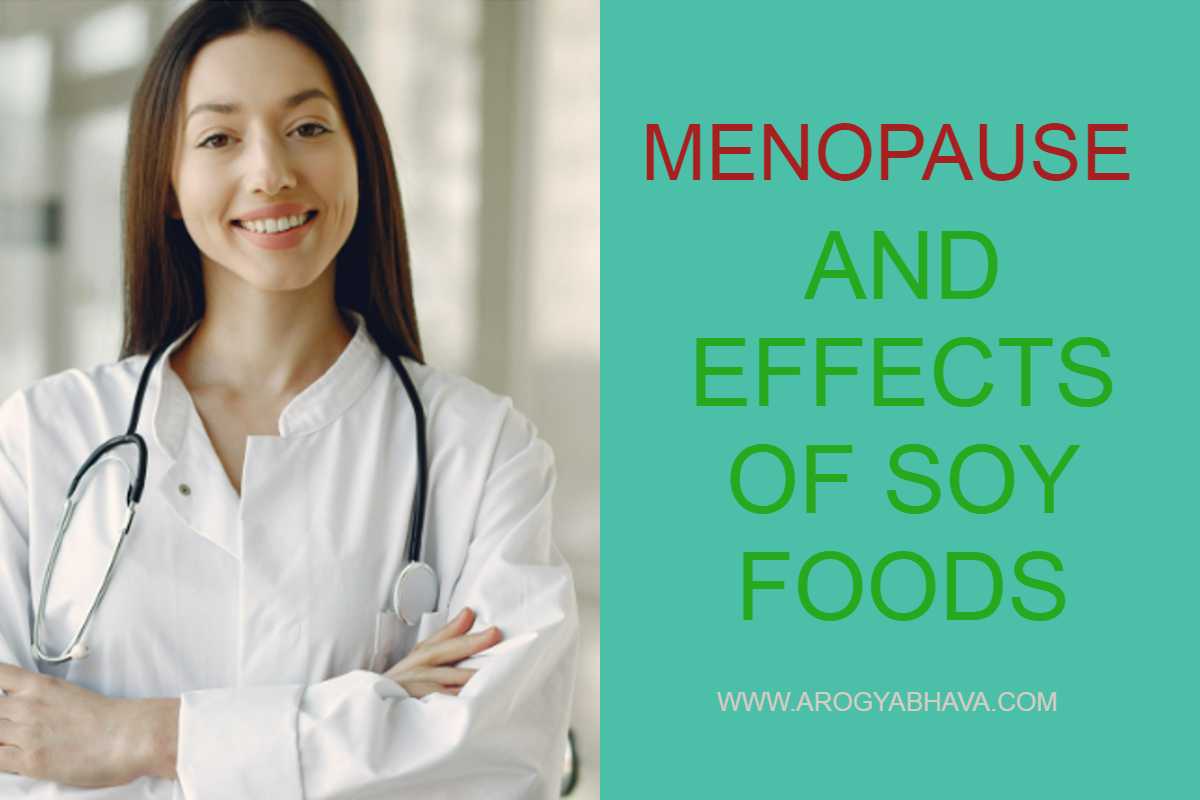Women’s Health: Effects of Soy Foods in Menopause

Women’s Health: In Japan, there is no word for menopause and it is widely believed that women in that country do not suffer from the effects of this change in life. Explanations for this have centred mainly on diet, and the differences between the Japanese – and more generally the Asian diet – and the typical western diet. The most obvious difference is the high consumption of soybean and soybean products.
Soybean contains a family of chemical compounds similar to the oestrogens produced in the body. Adding sources of Phyto-oestrogens, such as soybean and soybean products to the diet may, therefore, be a more natural way to treat the symptoms of menopause. Actually, health-conscious people have known for decades that soy foods are a fun and healthy addition to the diet.
Soybeans are also a rich source of calcium, iron, zinc, phosphorus, magnesium, B vitamins, Omega-3 fatty acids and fibre.
Why is the consumption of soy beneficial for women after menopause?
Many serious health problems, including osteoporosis, are more common in postmenopausal women. Physical weakness and weight gain are common problems in women. Symptoms that sometimes occur with menopause include profuse sweating at night and hot flashes. These are due to a loss of temperature control – one of the byproducts of a slowed production of oestrogen (Estrogen).
There’s no need to be concerned about these issues because a recent study found that “consumption of soy protein can reduce osteoporosis and metabolic problems after menopause.” Soy isoflavones may be an alternative way to check and minimise menopause-related discomforts like weak estrogen-like effects.
Soy protein, according to researchers, is also very beneficial for women who have not yet reached menopause. One of the researchers, Professor Pamela Hinton, explains that the study’s findings suggest that women can improve their bone strength by including soy milk or soybean-based foods in their diets.
Also Read: Know more about hormonal imbalance in women
Estrogen (oestrogen) in soy
Phytoestrogens are plant-derived hormones that can reverse some of the hormonal changes associated with menopause. Soy-based foods contain a high concentration of phytoestrogens. Switching to other soy-based foods, such as tofu, can help alleviate hot flashes.
Soybeans are high in isoflavones, which are important components of the female reproductive system. Estrogen levels drop dramatically during menopause. Isoflavones can bind to oestrogen receptor cells, preventing the body from experiencing oestrogen deficiency. It can alleviate many menopausal symptoms, including mood swings, hot flashes, and hunger pains.
In fact, research has shown that women who ate soy flour products daily, experienced about a 40 per cent reduction in menopausal symptoms. Since oestrogen helps protect against osteoporosis and heart disease, women are at greater risk for developing both these problems after menopause. Adding soy foods may provide some benefits.
Finally, there may be a future for soy as an alternative to hormone replacement therapy. There is much excitement about this area of study, but it’s still too early to tell. Many women, approaching menopause feel uncomfortable about taking synthetic oestrogen or hormone replacement therapy. In fact, nearly one-third of all prescriptions for hormone replacement therapy go unfilled. To these women looking for comfortable and safe options, the Soybean is a boon indeed!